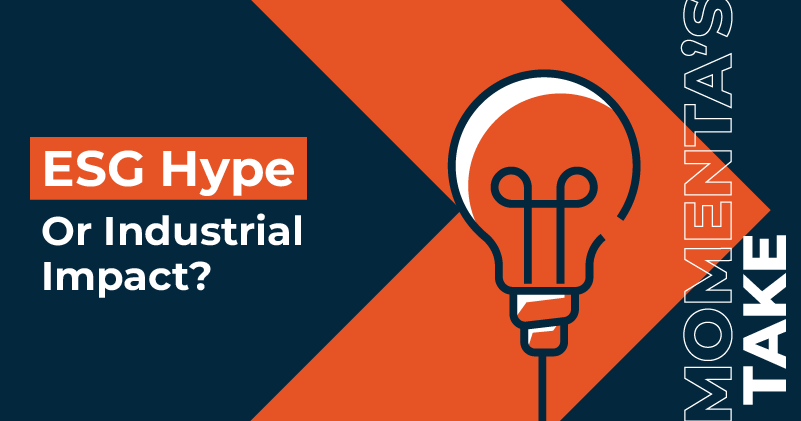Jun 20, 2023
| 4 min read

ESG (Environmental, Social, and Governance) refers to criteria commonly used to evaluate a company's sustainability and ethical practices. In the context of ESG, sustainability generally refers to the ability to meet the needs of the present without compromising the ability of future generations to meet their own needs.
When WEF released a framework for IoT sustainability in 2018, its study showed companies looking for predominantly government incentives at the design phase of projects. With large funds such as Blackrock using market clout to pressure ESG agendas among publicly traded companies, management teams were compelled to communicate their ESG strategies.
However, cooling investor enthusiasm and growing politically motivated pushback against ESG could reduce the pressure for public management teams to focus on messaging optics specifically to appease ESG funds. Consequently, firms can instead focus on the holistic aspects of ESG that drive fundamental business value while simultaneously benefiting the environment and a broader set of stakeholders at the same time.
Cooling Investor Enthusiasm for ESG Funds in 2022
Difficult market conditions and underperformance led to ESG fund outflows in 2022. Meanwhile, pushback is increasing from state funds, with 27 U.S. states, representing 35% of total public pension assets, having recently taken action to oppose ESG investment.

Management Teams Backing Away from ESG Messaging
After several years of more prominent messaging, companies are backing away from the public emphasis on ESG, particularly around social initiatives (in part due to a desire to avoid getting ensnared in culture wars). Mentions of green and social initiatives during earnings calls have fallen sharply amid pressure from investors and activists in recent quarters. Executives at U.S.-listed companies mentioned "environmental, social and governance," "ESG," "diversity, equity and inclusion," "DEI," or "sustainability" on 575 earnings calls from April 1 to June 5, down 31% from the same period last year, according to data from financial-research platform AlphaSense.

Where Industrials Can Focus on Creating ESG-Aligned Value from IoT
For industrial firms, digitalization through IoT can help achieve more sustainability while saving costs, improving efficiencies, and reducing risks to the business. Industrial firms can implement real-time monitoring, data collection, and analysis by connecting and instrumenting devices, sensors, and systems. This can facilitate more efficient resource utilization and optimization, reduce energy consumption and waste, and improve overall environmental impact. There are several ways in which ESG-aligned efforts can benefit the business as well:
While industrial firms are likely to face less investor pressure to publicize ESG efforts, this provides an opportunity to adopt more ESG-aligned initiatives based on business value.

Momenta is the leading Digital Industry venture capital + value creation firm, accelerating entrepreneurs and leaders devoted to the digitization of energy, manufacturing, smart spaces, and supply chains. Since 2012, their team of deep industry operators has invested in 50 entrepreneurs and helped scale over 150 industry leaders via their award-winning executive search and strategic advisory practices.